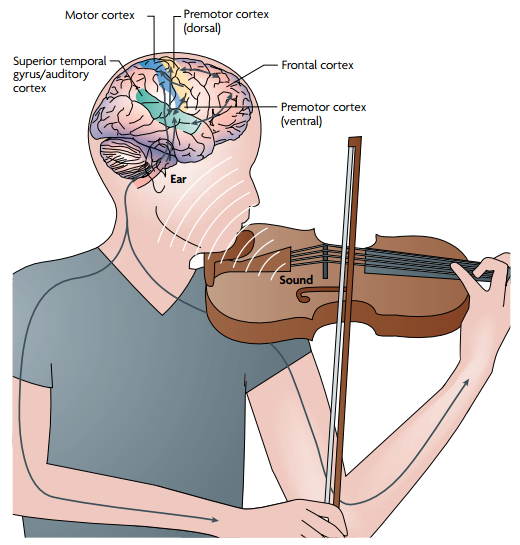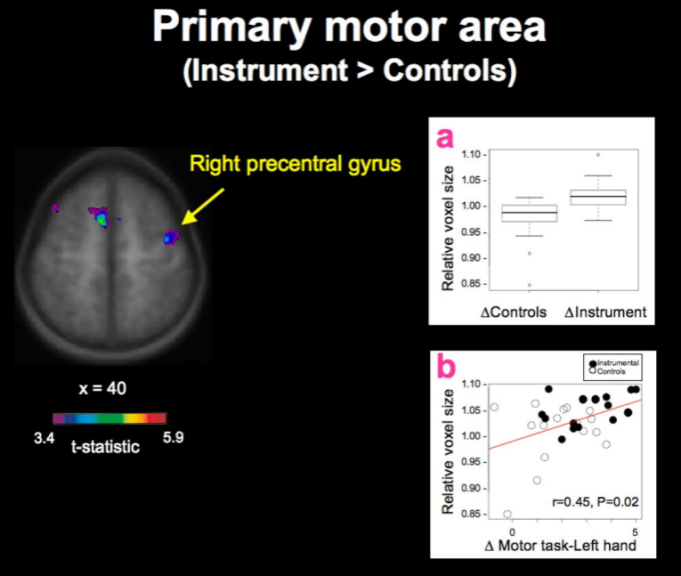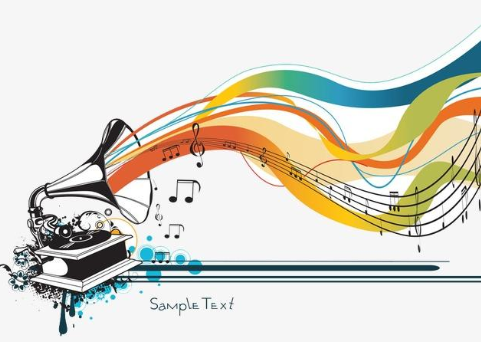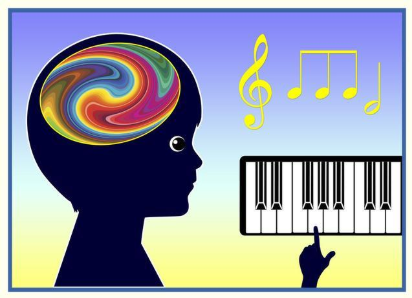[1] Zatorre RJ, Chen JL, Penhune VB. When the brain plays music: auditory-motor interactions in music perception and production [J]. Nature Reviews Neuroscience, 2007, 8(7):547-558.
[2] Wong P C, Skoe E, Russo N M, et al. Musical experience shapes human brainstem encoding of linguistic pitch patterns [J]. Nature Neuroscience, 2007, 10(4):420-422.
[3] Bermudez P, Lerch J P, Evans A C, et al. Neuroanatomical correlates of musicianship as revealed by cortical thickness and voxel-based morphometry [J]. Cerebral Cortex, 2009, 19(7):1583.
[4] Peter Schneider, Michael Scherg, H. Günter Dosch, et al. Morphology of Heschl’s gyrus reflects enhanced activation in the auditory cortex of musicians [J]. Nature Neuroscience, 2002, 5(7):688-694.
[5] Lappe C, Herholz S C, Trainor L J, et al. Cortical plasticity induced by short-term unimodal and multimodal musical training [J]. Journal of Neuroscience, 2008, 28(39):9632-9639.
[6] Schmithorst V J, Wilke M. Differences in white matter architecture between musicians and non-musicians: A diffusion tensor imaging study [J]. Neuroscience Letters, 2002, 321(1):57-60.
[7] Bermudez P, Lerch J P, Evans A C, et al. Neuroanatomical correlates of musicianship as revealed by cortical thickness and voxel-based morphometry [J]. Cerebral Cortex, 2009, 19(7):1583-1596.
[8] Keenan JP, Thangaraj V, Halpern AR, et al. Absolute pitch and planum temporale [J]. NeuroImage, 2001, 14(6):1402-1408.
[9] Gaser C, Schlaug G. Gray Matter Differences between Musicians and Nonmusicians [J]. Annals of the New York Academy of Sciences, 2003, 999(1):514.
[10] Hyde K L, Lerch J, Norton A, et al. Musical training shapes structural brain development [J]. Journal of Neuroscience, 2009, 29(10):3019-3025.
[11]Moreno S, Marques C, Santos A, et al. Musical training influences linguistic abilities in 8-year-old children: more evidence for brain plasticity [J]. Cerebral Cortex, 2009, 19(3):712-723.
[12]Anvari S H, Trainor L J, Woodside J, et al. Relations among musical skills, phonological processing, and early reading ability in preschool children [J]. Journal of Experimental Child Psychology, 2002, 83(2):111-130.
[13] Psyche Loui, Kenneth Kroog, Jennifer Zuk, et al. Relating Pitch Awareness to Phonemic Awareness in Children: Implications for Tone-Deafness and Dyslexia [J]. Frontiers in Psychology, 2011, 2(6):111.
[14] Sheehy K. The contribution of sensitivity to speech rhythm and non‐speech rhythm to early reading development [J]. Educational Psychology, 2010, 30(3):247-267.
[15] Moritz C. Links between early rhythm skills, musical training, and phonological awareness[J]. Reading & Writing, 2013, 26(5):739-769.
[16] Escalda J, Lemos S M A, França C C. Auditory processing and phonological awareness skills of five-yearold children with and without musical experience [J]. Jornal da Sociedade Brasileira de Fonoaudiologia, 2011, 23(3), 258-263.
[17] Chobert J, Marie C, François C, et al. Enhanced passive and active processing of syllables in musician children [J]. Journal of Cognitive Neuroscience, 2011, 23(12):3874-3887.
[18] Strait D L, O’Connell S, Parberyclark A, et al. Musicians’ Enhanced Neural Differentiation of Speech Sounds Arises Early in Life: Developmental Evidence from Ages 3 to 30 [J]. Cerebral Cortex, 2014, 24(9):2512-2521.
[19] Anvari SH, Trainor LJ, Woodside J, et al. Relations among musical skills, phonological processing, and early reading ability in preschool children [J]. Journal of Experimental Child Psychology, 2002, 83(2):111-130.
[20] Hobbs C. A comparison of the music aptitude, scholastic aptitude, and academic achievement of young children [J]. Psychology of Music, 1985, 13(2), 93-98.
[21] Geoghegan N, Mitchelmore M. Possible Effects of Early Childhood Music on Mathematical Achievement [J]. Comparative Analysis, 1996:9.
[22] Perlovsky L, Cabanac A, Bonniot-Cabanac M C, et al. Mozart effect, cognitive dissonance, and the pleasure of music [J]. Behavioural Brain Research, 2013, 244(3):9-14.
[23] Schellenberg E G. Long-term positive associations between music lessons and IQ [J]. Journal of Educational Psychology, 2006, 98(2):457-468.















